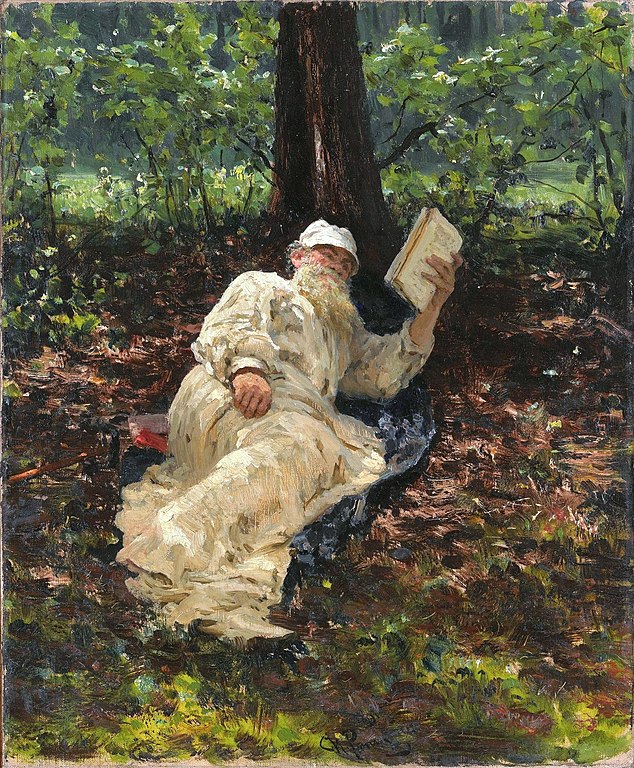Leo Tolstoy Archive
Written: 1885
Source: Original Text from Gutenberg.org
Transcription/Markup: Andy Carloff
Online Source: RevoltLib.com; 2021

Close to the village there lived a lady, a small landowner, who had an estate of about three hundred acres. She had always lived on good terms with the peasants, until she engaged as her steward an old soldier, who took to burdening the people with fines. However careful Pahom tried to be, it happened again and again that now a horse of his got among the lady’s oats, now a cow strayed into her garden, now his calves found their way into her meadows-and he always had to pay a fine.
Pahom paid, but grumbled, and, going home in a temper, was rough with his family. All through that summer Pahom had much trouble because of this steward; and he was even glad when winter came and the cattle had to be stabled. Though he grudged the fodder when they could no longer graze on the pasture-land, at least he was free from anxiety about them.
In the winter the news got about that the lady was going to sell her land, and that the keeper of the inn on the high road was bargaining for it. When the peasants heard this they were very much alarmed.
“Well,” thought they, “if the innkeeper gets the land he will worry us with fines worse than the lady’s steward. We all depend on that estate.”
So the peasants went on behalf of their Commune, and asked the lady not to sell the land to the innkeeper; offering her a better price for it themselves. The lady agreed to let them have it. Then the peasants tried to arrange for the Commune to buy the whole estate, so that it might be held by all in common. They met twice to discuss it, but could not settle the matter; the Evil One sowed discord among them, and they could not agree. So they decided to buy the land individually, each according to his means; and the lady agreed to this plan as she had to the other.
Presently Pahom heard that a neighbor of his was buying fifty acres, and that the lady had consented to accept one half in cash and to wait a year for the other half. Pahom felt envious.
“Look at that,” thought he, “the land is all being sold, and I shall get none of it.” So he spoke to his wife.
“Other people are buying,” said he, “and we must also buy twenty acres or so. Life is becoming impossible. That steward is simply crushing us with his fines.”
So they put their heads together and considered how they could manage to buy it. They had one hundred rubles laid by. They sold a colt, and one half of their bees; hired out one of their sons as a laborer, and took his wages in advance; borrowed the rest from a brother-in-law, and so scraped together half the purchase money.
Having done this, Pahom chose out a farm of forty acres, some of it wooded, and went to the lady to bargain for it. They came to an agreement, and he shook hands with her upon it, and paid her a deposit in advance. Then they went to town and signed the deeds; he paying half the price down, and undertaking to pay the remainder within two years.
So now Pahom had land of his own. He borrowed seed, and sowed it on the land he had bought. The harvest was a good one, and within a year he had managed to pay off his debts both to the lady and to his brother-in-law. So he became a landowner, plowing and sowing his own land, making hay on his own land, cutting his own trees, and feeding his cattle on his own pasture. When he went out to plow his fields, or to look at his growing corn, or at his grass meadows, his heart would fill with joy. The grass that grew and the flowers that bloomed there, seemed to him unlike any that grew elsewhere. Formerly, when he had passed by that land, it had appeared the same as any other land, but now it seemed quite different.